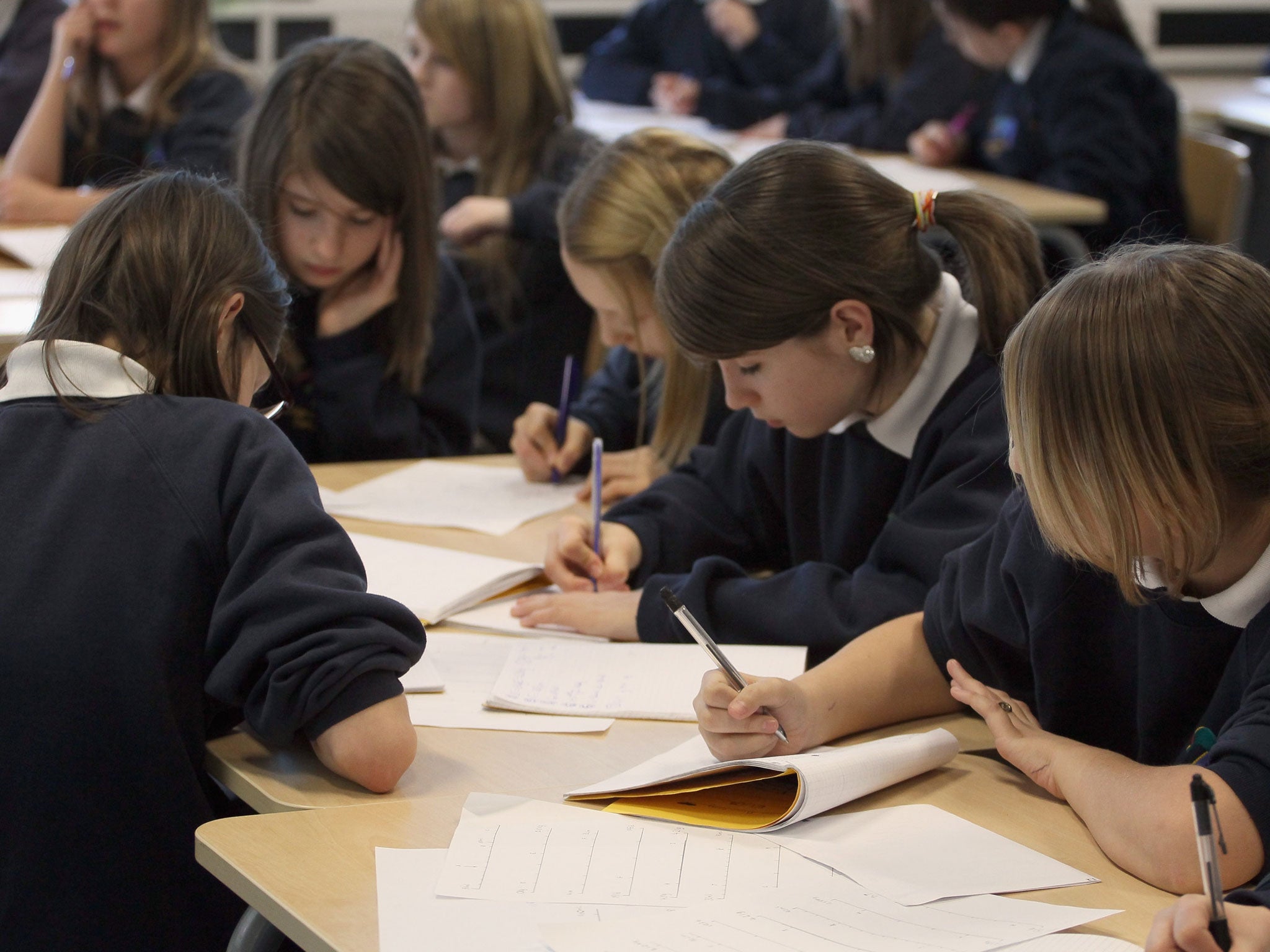School heads 'on brink of joining TUC'
Mood of headteachers is 'angrier and uglier' over education reforms

Britain's biggest headteachers' union is planning to join the TUC, as its leader warns the mood of its members is "angrier" and "uglier" as a result of the Government's school reforms.
Russell Hobby, general secretary of the traditionally moderate National Association of Head Teachers (NAHT), expects the move to be approved at its annual conference on Friday. He said: "I think the mood is that they are quite close to the brink. The mood is uglier. People are angrier than in previous years." In an interview with The Independent on Sunday, he added: "I think the volume of change and the hardness of the rhetoric [towards teachers] have created a great deal of unhappiness in the system, and I'm not sure how much they can push it until something breaks."
Mr Hobby highlighted two key concerns: attempts to "bully" heads into joining the Government's flagship academies programme, and two tests which they believe are "bad" education practice. These are a reading check for all six-year-olds, which includes having to spell made-up words, while the second is a new spelling, grammar and punctuation test, taken by 600,000 11-year-olds for the first time last week, that heads believe is unnecessary.
The heads' mood ensures Michael Gove, the Education Secretary, will have another tough battle on his hands when he arrives at the conference on Saturday to defend his policies. He already faces growing opposition to his national curriculum reforms from critics who say they will stifle creativity and provoke strike action from teachers.
On the concerns over the academies programme, Mr Hobby cited cases where "academy brokers", who have the job of going into schools and persuading them to become academies, had drawn heads aside in the playground. "It's all off the record," he said, "but they make them offers they can't refuse, such as saying: 'Maybe if you change now you can keep your job but if you convert in a year's time, we can't make any promises.' They try to intimidate them into becoming academies."
The number of calls to the NAHT's hotline for beleaguered heads has doubled in a year to 250 a week. "Ofsted [the education standards watchdog] has contributed to that," he said. "It's not only that it's changed the definition of 'satisfactory' to 'requires improvement'. It's also got a tight control over the definition of 'outstanding'." A school can only be outstanding if all its teaching is rated as outstanding too. "There are reports that they're considering a new category of 'outstanding-plus'."
These changes had increased the pressure on heads, he added. Last month an inquest found that a primary school teacher, Helen Mann, who taught at Stourport-on-Severn, Worcestershire, had committed suicide in her school. The inquest was told one of her fears was that the school could lose its "outstanding" status in its next Ofsted report.
The concerns expressed by Mr Hobby are echoed in the agenda for next weekend's conference in Birmingham, where heads will start by voting on a motion declaring "no confidence" in many of the Government's education reforms. The agenda makes no mention of Mr Gove by name, but goes on to say that "too much power is currently given to one person to determine national policy on the basis of personal preference and ideologically driven assumptions." The motion will be debated just before Mr Gove arrives at the conference to answer questions posed by heads.
A Department for Education spokesman said any allegations of misconduct by brokers would be "treated with the utmost seriousness". He added: "Academy brokers help us to identify the best possible sponsor to turn around failing schools and ensure pupils are given every chance to fulfil their potential." On testing, he said: "The new grammar, punctuation and spelling test will ensure children are taught to understand their language and to use it properly, creatively and effectively."
A strom in a tergcup?
The phrase "you couldn't make it up" comes to mind when headteachers think about the new phonics test taken by all six-year-olds at the end of their first school year. "Who on earth could devise a test where the able readers score less than the weaker readers?" asks Russell Hobby of the National Association of Head Teachers.
The fact, though, is that the Government did indeed make it up.
The test consists of made-up words such as "voo", "terg" and "strom", and is designed to test children's phonics skills.The first year's results show that clever pupils are more likely to spell the words incorrectly, as they try to convert the made-up words into real ones, whereas weaker ones do not. "People think they're wasting their time and there is no educational value in this," Mr Hobby says.
The Education Secretary, Michael Gove, believes the test is essential to end what he calls the "scandal" of low literacy levels in schools.
Richard Garner
Join our commenting forum
Join thought-provoking conversations, follow other Independent readers and see their replies
Comments
Bookmark popover
Removed from bookmarks